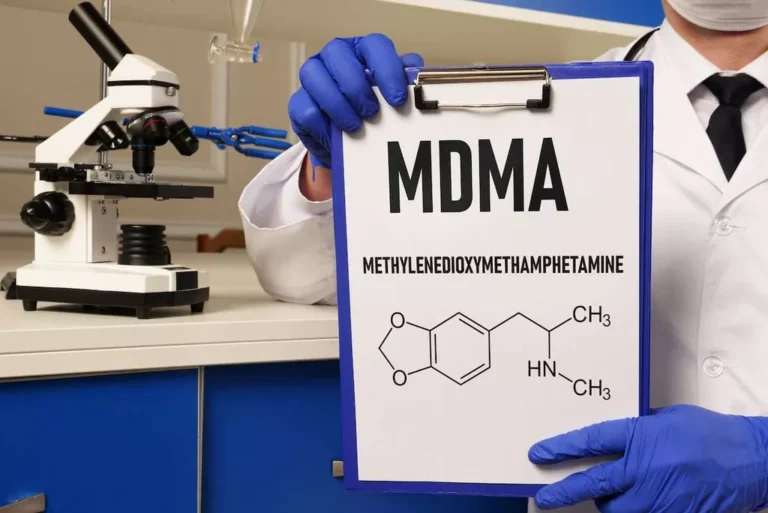How Wernicke-Korsakoff Syndrome Affects the Brain

Problems with thinking and reasoning (caused by dementia) can prevent a person from understanding that they need to stop drinking. If a doctor is unaware of the person drinking too much alcohol over many years, they may not consider alcohol-related ‘dementia’ as a possible diagnosis. The person may not get the right treatment and support, which is why it is important to tell doctors about drinking too much alcohol. The person may have memory loss and difficulty thinking things through. They may have problems with more complex tasks, such as managing their finances.
Prevention
Excessive consumption of alcohol damages nerve cells, disrupts cognitive abilities, and increases the risk of developing memory problems and cognitive deficits. Unlike normal aging, alcohol-related brain damage, often linked to patterns of drinking alcohol or alcohol misuse, can lead to alcohol-related brain impairment and significant challenges in day-to-day tasks. Conditions such as Wernicke’s can alcohol cause dementia encephalopathy or Wernicke-Korsakoff syndrome, caused by a severe lack of thiamine, highlight the danger of alcohol addiction and its role as a risk factor for young onset dementia. Alcohol-related brain injury is preventable and, in some cases, treatable.
- For reference, one unit is considered a half pint of beer or a small glass of wine.
- Alcohol-related dementia can affect how long you’ll live (your life expectancy).
- That damage destroys nerve cells that you need to control your thoughts and body movements.
- In the context of alcohol-related dementia, longer-term programs may be beneficial, as cognitive improvements and the establishment of healthy routines can take time.
- If alcohol-related dementia is suspected, your doctor may recommend an MRI to confirm the diagnosis.
- In the long-term, chronic alcohol use increases the risk of permanent brain damage.
What are the treatments for alcohol-related ‘dementia’?
- The treatment and management of alcohol-induced dementia will vary based on the underlying cause.
- If caught early enough, patients with the more general type of ARD can significantly improve their condition by quitting alcohol and eating a balanced diet.
These terms are used interchangeably and describe a severe form of alcohol-related brain damage (ARBD). The Norwegian Patient Registry (NPR) is a comprehensive national database that includes all instances of publicly funded specialized inpatient or outpatient treatment throughout Norway. In the country, most specialized healthcare services receive public funding. The study cohort consists of all individuals aged 20 to 79 who were recorded in the NPR at least once between January 1st, 2009, and December 31st, 2015, with either a primary or secondary diagnosis of AD, DT, or AIP.

Is Alcoholic Dementia Reversible?

Females should have no more than one standard-sized drink a day, and seven or fewer drinks each week. They’ll likely start by doing a physical exam and asking about your physical and psychological symptoms. They may also ask you to complete a questionnaire about symptoms related to your memory and cognitive abilities. IH curated the data and conducted the statistical analyses with inputs from JGB and EBR. JGB drafted the first manuscript, and all authors contributed equally to the development of the last version, which was also approved by all authors.

What Causes Alcohol Induced Dementia?
However, those who have suffered a permanent damage to the brain in alcohol dementia, it is difficult to recover completely, however their life would improve greatly once they quit alcohol. Treatment for alcoholic dementia primarily focuses on abstaining from alcohol to prevent further damage. Nutritional support, particularly thiamine supplementation, is critical to address deficiencies and support brain health. Rehabilitation programs may also play a vital role in recovery, offering psychological support and strategies to manage symptoms. Nutritional support is also crucial, as what is alcoholism deficiencies in vitamins (like thiamine) and minerals can exacerbate brain damage.
Alcohol and Cialis: Risks, Side Effects & Treatment

People sometimes call it “alcohol-induced dementia” or “alcoholic dementia,” but these are more outdated names. If you suspect you have this condition, reach out to a healthcare professional as soon as possible to discuss treatment options. The sooner you treat alcohol-related dementia, the better your chances of recovery. If you stop drinking, it’s possible to at least partially reverse the effects of alcohol-related dementia. Research suggests it’s possible to experience partial recovery of your brain’s white matter, which is accompanied by an improvement in cognitive and motor abilities. We conducted a comparison of the three patient groups with respect to gender, age, crude mortality rates (Table 1), and alcohol-related comorbidity.
- Most people with alcohol-related ‘dementia’ will need to stay in hospital for this.
- Managing Alcohol Induced Dementia requires a supportive and structured approach to ensure the well-being of both the patient and their caregivers.
- Consistent abstinence, combined with medical and nutritional support, can help the brain regain some lost functions or adapt in ways that reduce symptoms.
- Conditions such as Wernicke’s encephalopathy or Wernicke-Korsakoff syndrome, caused by a severe lack of thiamine, highlight the danger of alcohol addiction and its role as a risk factor for young onset dementia.
- This can make you progress through stages of alcohol-related dementia faster.
